Diet
Brides, Wedding Planning and Diet Culture
How to create a mindful wedding without disordered eating and being fat shamed
Posted March 23, 2019
We are approaching wedding season again and given that I help clients in their twenties and thirties strengthen their romantic and sexual relationships, I have coached many clients and couples from their engagements through their wedding. It is frequently the bride in heterosexual couples who fall prey to what I call the pre-wedding fat-shaming diet culture almost the day after she’s gotten “a ring on it”.
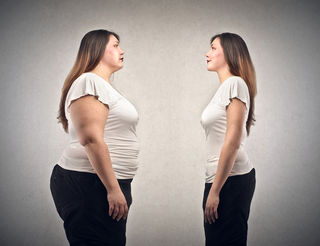
I’ll be focusing on straight weddings in this blog because there haven’t been much research in the areas of either male eating disorders (they do exist), or diet culture among lesbian couples.
For many American women, there is an ideal to meet when planning for their wedding and much of it has to do with the picture-perfect image of a thin bride walking down the aisle to meet the gaze of her loving fiancé in front of adoring friends and family.
Besides the popularity of bridal reality shows like Say Yes to the Dress, My Fair Wedding, Bridezillas and Four Weddings, women follow wedding hashtags on their Instagram stories and Pinterest posts to get ideas for their own wedding all the while viewing images of women who frequently diet for up to 12 months before their wedding.
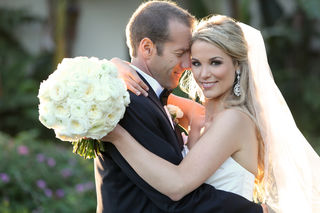
According to a recent study of mostly white brides to be, 90% engaged in some kind of diet 5-6 months before their big day. The average weight they hoped to lose was 23 lbs. and the average weight they actually lost was 7.1 lbs.
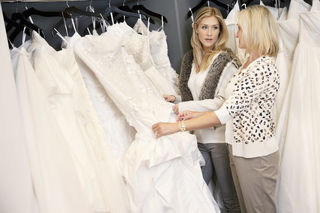
Unfortunately, some women are additionally fat-shamed by their own relatives or friends who make subtle comments like: “Oh that dress doesn’t flatter you” or “Maybe an empire waist would be more suitable?”. While other brides continue to receive longstanding direct remarks they’ve received their entire life like: “You are really going to have to work out a lot if you want to fit in that dress” or “Do you really think you should have another glass of wine while you’re trying to lose that weight before the wedding?”.
Many of my clients are batting old body hatred they may have modeled on girlfriends in middle school when girls begin to lose their embodied self-confidence and focus more on how they’re being perceived by others as either sexy or not sexy. These early body shaming comments whether directed at oneself “I was so bad this week, look how much weight I put on”, or from others “Wow, you really shouldn’t have that full shake, it’s over 500 calories!” are internalized over the years.
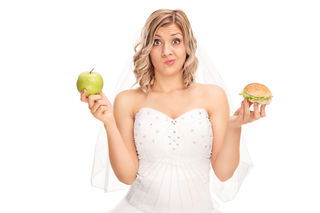
They also lead to lower Sex Esteem® when sexually connecting to a partner or fiance. Many women report that their negative body voice will say things like: “How can you even let him see you naked when you haven’t lost that weight?” or “Don’t you dare go on top during sex, you don’t want him to see your flabby arms!” These are the voices I coach women to quiet down through mindful meditation exercises. I also help them write healthy arguments to retort to these voices so that their Sex Esteem® can begin to blossom. I also encourage them to use mindfulness in the whole process of their wedding planning including wedding shopping, financial budgeting, guest invitations, discussing details with parents and in-laws and most importantly collaborating with their fiance. Here are some practical tips:
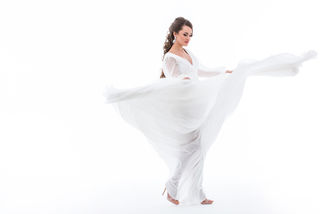
1. When shopping for a dress, ask the saleswomen to hold their comments and if possible to draw a curtain over the mirror. If the latter isn’t possible, keep your back to the mirror and close your eyes as you move in the dress. Ask yourself:
- How do I want to feel at my wedding?
- What fabric feels amazing against my skin?
- Do I like feeling the air on my arms, neck, chest, and legs or will I feel more comfortable with something on the skin, and why?
- Imagine the music you’ll dance to while in the dress, does it feel comfortable? Are you able to breathe and freely move your arms and legs?
2. When contemplating the cost of a wedding, what are the ingredients that will be most meaningful or spiritually important to you and your fiance? (This may or may not overlap with religious beliefs)
- Who are the people that are most important to you in your life who you want supporting you during this life transition? If they don’t have the resources or physical ability to travel would it then be more conducive NOT to have a destination wedding?
- If the number is higher than you imagined, might it be better to have a lower key party and less expensive venue to accommodate those you want there?
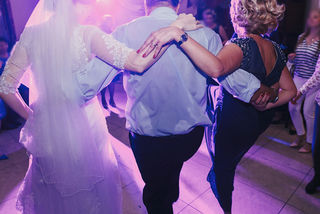 Source: Deposit Photos
Source: Deposit Photos - If you and your fiance are of different religious upbringings is there a way to combine elements and spiritual leaders from both your faiths?
- When shopping for flowers, bands, photographers, invitations, place cards, etc. is there any element you can DIY or eliminate to make the event more unique AND affordable?

3. When discussing the wedding with friends or relatives in the months leading up to the
wedding they usually like to pepper you with questions about the dress. Let them know you’re happy with the outfit you chose, and that you’d rather not focus your attention on it. You can say:
- “I’m enjoying the process of creating a meaningful day and keeping my focus on the love that will be around us.”
- “I’ve been finding that spending too much time on the external elements are distracting me from the special time with my honey.”
- I hope you’ll have a wonderful experience at this celebration which we’re looking forward to sharing with you all.
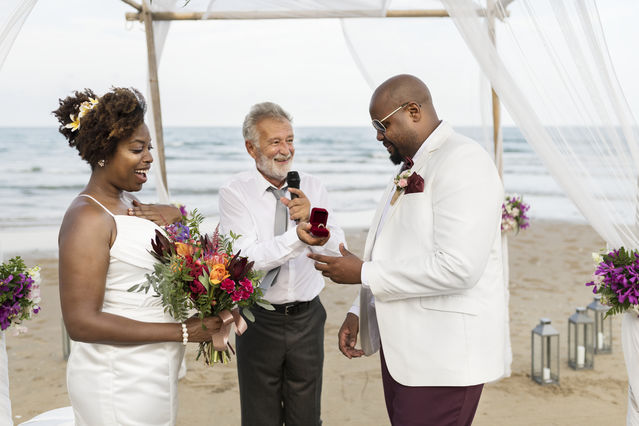
4. If relatives and parents are projecting their own body shame and anxiety onto you the bride
you need to be prepared. Here are some ways to establish boundaries:
- I’m not going to diet before the wedding since research shows that most diets don’t work long term.
- I am focused on sustaining a healthy lifestyle long term so while I know you mean well, please don’t send me links to dieting or exercise programs.
- Please don’t comment on the food I eat while we share a meal, it makes me feel judged and I’m working on feeling good from the inside out.
- My fiance and I are co-constructing this wedding and we want to focus on the emotional, spiritual and communal elements to the ceremony and party. My clothing is a small part of a much larger, more meaningful event when it comes to our life as a couple.
I wish you mindful space to contemplate this planning period with an intention inspiring deep purpose, connection and peace with your body so you can feel pleasure and intimacy with yourself and those you love.
References
Neighbors, L., & Sobal, J. (2008). Weight and weddings: Women's weight ideals and weight management behaviors for their wedding day. Appetite, 50(2), 550-554. https://doi.org/10.1016/j.appet.2007.11.001
Francien Broekhuizen & Adrienne Evans (2016) Pain, pleasure and bridal beauty: mapping postfeminist bridal perfection, Journal of Gender Studies, 25:3, 335-348, DOI: 10.1080/09589236.2014.959478




